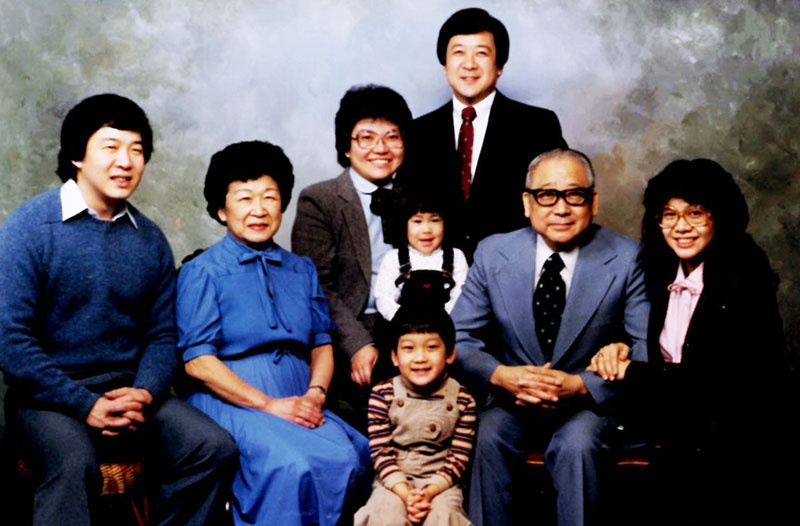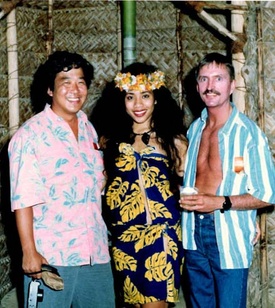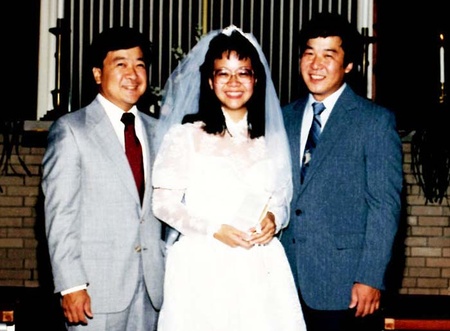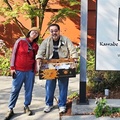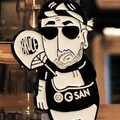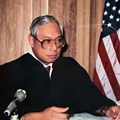What were the internal conflicts you struggled with? How did you manage it or how did it impact you from the standpoint of your mental health, personal self-image, and confidence?
I loved my parents and they raised me to be proud of my JA heritage. We went to movies that featured JA actors. I remember seeing Go for Broke (1951) in the 1950s and they taught me to persevere if taunted about being JA. But they also instilled the thought that somehow my actions reflected on all other JAs, so if I did something wrong, then it would be a mark against not only our family but also on others in the community.
Meanwhile, it took a while to realize that I was a homosexual. I thought it was a phase that would pass and when it did not, I thought if I refrained from contact then I wasn’t a homosexual. I was determined that no one would ever find out and if they did, then I thought in horror that I would have to end up like the characters in the movies.
There were many times I was distraught and felt like there was no future. Outwardly, I was happy, but I now realize that I used humor as a disguise. And like many young people, I used alcohol and drugs as an escape.
This was not a good road to be on and I decided to move from Cleveland and find myself. I “came out” to my close friends in Cleveland and they were incredibly supportive, and we all remain close friends even today. I hated leaving my family in Cleveland without telling them the truth, but I just wasn’t ready.
Moving to Seattle was like raising the shades and letting the sunlight in. In the 1980s, Capitol Hill was a gay mecca. I could walk around and feel welcomed. I happened across my first Gay Pride parade and it was so uplifting seeing thousands of people from all walks of life demonstrating their pride in who they were.
The most exciting place was the gay disco as I always loved to dance, and gay disco was the epitome. There was so much pure energy. The music blasting, the beat thumping, the strobe lights abounding, and pulsating waves of humanity of hundreds of men dancing for long periods of time. It was a total release of solidarity where you could be yourself among others who were just like you.
I became active with a group called SEAMEC (Seattle Municipal Elections Committee) that interviewed candidates for elective offices for their views on LGBTQ issues. For a couple of years, I sat in on almost all the interviews and had a chance to talk with candidates like Jim McDermott, Charlie Royer, and Mike Lowry, as well as newcomers at the time, such as Gary Locke, Al Sugiyama, and Ron Sims.
Again, as free as one side of my life was in Seattle, the reality was that on Monday, I returned to work and downplayed what I did on the weekend. I remained closeted to most of my co-workers.
Again, I realized that I needed to make a change. I may not have yet realized that it was going to be a positive and life-affirming change.
You were still a bit private about your relationship with your first partner and his passing from AIDS during a most difficult time. Can you share your story here?
The ‘80s were a pivotal time for me with several major events. While I was experiencing an awakening of gay life in Seattle, the world was seeing a new disease surfacing… AIDS. In the gay community, we began getting news snippets and hearing rumors of a “gay cancer.” The numbers at first were not big, but the disease was fatal and seemed to target sexually active gay men. A friend and I attended an early 1983 community briefing at Seattle Central Community College and we did not know how many people would show up. The auditorium was packed. The gay community was scared.
In 1984, I met my first partner, Lou. We had just started seeing each other when I had to fly back to Cleveland, Ohio, because my mom had suffered a heart attack at age 61. I made it back in time to see her before she passed away, totally unexpectedly. My dad suffered from diabetes and a year before, had begun to go blind.
Like many Asian families who care for their loved ones, my younger sister, Karen, returned home every weekend during her college years to take care of my dad. During that time, she and dad would make trips to Seattle to visit me.
Later, my sister married and moved to the Dayton area and my dad decided to live with my older brother, Irland, and his family in Toledo. Irland and his wife Kathy had three children and I think all the activity proved too much for dad, who by then required kidney dialysis. At that point he came to live with Lou and me in Seattle, as we had bought a house in the Green Lake area. Surprisingly, the family did not realize that Lou and I were gay.
Being a caregiver for dad was time consuming but done with love. I drove him to dialysis three times a week, along with all his medical appointments and many hospital stays. Fortunately, my boss was really understanding. Rather than having me use up all my sick leave, he gave me the keys to the office and told me to leave whenever I had to, but to make sure I put in 40 hours and that I got all my work done.
Eventually, Dad’s condition worsened and he needed more extensive care. Luckily, through the efforts of local community leader Sam Shoji, Dad went to Seattle Keiro (later named Keiro Northwest), the community’s beloved nursing home facility. I continued to visit him every day, take him to dialysis, and to all his medical appointments. The Seattle Keiro staff provided great care and I became indebted to them. He passed away in February 1989.
The following year, Lou became ill. We could not determine what the cause was but after several weeks of antibiotics and other drugs, Lou went to the hospital where we got the news that Lou had AIDS.
Even today, people cannot understand how devastating this news was. There was no cure or real treatment at the time. The drug regimen for AIDS-related opportunistic diseases was so harsh that even more medications were required to combat those side effects.
However, the worst part was the stigma. In those days, people with AIDS were treated like the leper outcasts in the Bible. For this reason, Lou did not want any of our family or friends to know that he had AIDS, nor did he want us to “come out” to anyone.
Still, in between bouts of illness, Lou and I took care of our house, our dog Buber, and went on vacations and long car trips that always included Las Vegas. We had a loving and caring relationship. There were many ups and downs and so many times when we thought it was the end. I spent hours researching on early chat rooms, usenets (the precursor to internet discussion forums), and underground papers for the latest treatments. For example, early on, Lou required a transfusion of 3-4 pints of blood every 3-4 weeks. I found underground articles that suggested that a new drug, “Epogen,” would help. I told the doctor and sure enough, it did the trick.
When the end came, it was not unexpected, but still not easy. I think of the tender moments at the hospital when I pushed his bed to face the window so we could see Seattle at night. Since Lou never wanted to die in a hospital, I took him home. I played his favorite music while he slept in his recliner with our dog keeping us company. He passed peacefully, just before his 50th birthday.
Unfortunately, despite all of our planning, there were unexpected hurdles in the final arrangements, since legally I had no standing in certain affairs… even the power of attorney was not sufficient. I had to gently explain what was needed and, in the end, we placed a pen in Lou’s hand and helped him make a mark. The doctor and nurse signed as witnesses.
How did your family respond and how did they provide support to you during that period and even today?
After Lou died, I finally was able to “come out” to my family and explain what had happened. My brother and sister and their families were incredibly supportive. I had inwardly thought that my brother might be taken aback, but I was so moved when he wanted to fly out to be with me and help with the funeral. It was Lou’s wishes that the service be private, but, nevertheless, I was touched by Irland’s love and support. My sister and I have always been close, and I knew she would always be there for me. I was surprised that Karen did not know that I was gay. It didn’t matter, but I still remember her saying that unless I told people, they would not think about it.
I told my co-workers and my friends, and I received nothing but kind thoughts. Often, people would come into my office, shut the door, and tell me how sorry they were to hear about my partner’s passing and how they felt bad that I had to endure this experience alone.
There were no negative reactions, my friendships became stronger, and for these I remain forever grateful.
*This article was originally published in the North American Post on May 29 and June 13, 2021.
© 2021 Elaine Ikoma Ko / The North American Post


